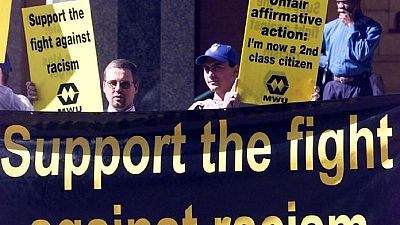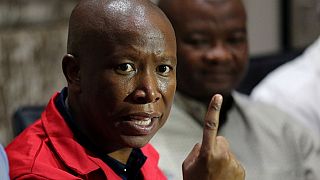South Africa
White South African workers through their Solidarity union on Monday kicked off an industrial action that includes a go-slow protest that is to develop into a full strike.
The whites who work for petrochemicals firm Sasol, are protesting against discrimination over a share scheme offered exclusively to black staff, and said they would begin a full strike on Thursday.
“We have a staggered industrial action. Today, we have a go-slow. Our 6,300 members will carry out their duties, but in a slow manner. We plan to ramp up to a full-blown strike on Thursday,” Dirk Hermann, Solidarity’s chief executive said.
South African companies are required to meet quotas on black ownership, employment and procurement as part of a drive to reverse decades of exclusion under apartheid. Meeting the rules makes a company more likely to qualify for government tenders.
Reverse racism?
Solidarity has been waging a challenge against racial quotas in the workplace, and lodged a complaint against the policy in 2016 with the U.N. Human Rights Commission.
Sasol, the world leader in technology that converts coal and gas to fuel, has sold 25 percent of its local operations to qualifying black employees, a foundation and the black public in a 21 billion rand ($1.5 billion) deal financed by the company.
It has said the scheme is not a benefit but a mechanism designed to meet the rules on black economic empowerment, and was backed by shareholders.
But Solidarity said the scheme was discriminatory and that it would file a complaint to U.S. regulators. Sasol also operates in the United States.
The union said 6,300 of its members would hold a go-slow at Sasol’s facilities in South Africa, and then strike on Thursday.
“We are not against the scheme, we just want it to be inclusive of all workers. If the company makes it inclusive, the majority will still be black, so we see no need to exclude white workers as this is discrimination,” said Dirk Hermann, Solidarity’s chief executive.
Sasol, which employs around 26,000 people in South Africa, said it was aware of Solidarity’s intent to strike, and that it had made contingency plans.
The ruling African National Congress said in a statement that it was concerned by the “obsession with perpetuating racial polarization” triggered by Solidarity’s protest.
REUTERS












01:41
Brazilian footballer, Vinicius Junior, speaks out against racism in the sport
02:18
Highly-anticipated Wicked makes its cinema debut in South Africa
01:00
Chidimma Adetshina crowned Miss Universe Africa and Oceania
01:10
South African beauty queen withdraws from Miss Universe pageant
01:38
Police spokesperson calls rescue attempt of trapped miners ‘unsafe’
00:45
What next for Safa president Danny Jordaan?